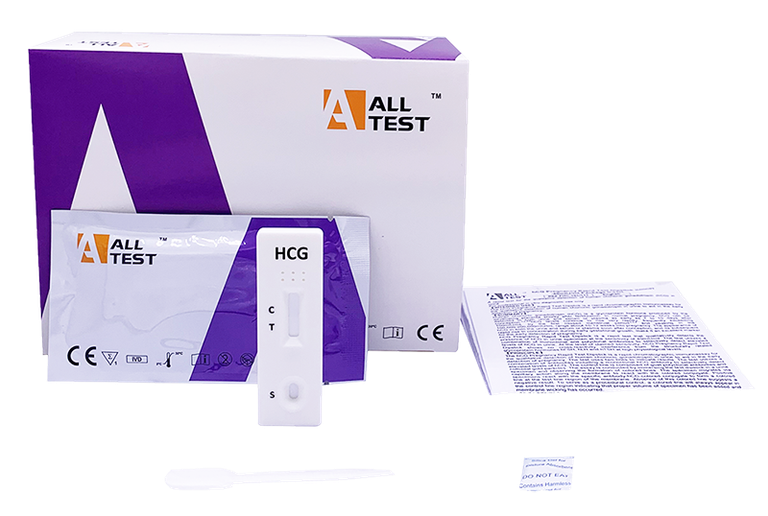Antigen testing and CRP can help to low COVID-burden in elderly care
The elderly living in long term care facilities are the most vulnerable for COVID-19. They have high probability of SARS-CoV-2 infection and a very high impact of disease.1 Estimated number of such facilities in EU/EEA and UK is 62000 with about 3,5 million inhabitants.2
Reducing virus transmission in long term care facilities by rapid antigen testing
Delayed diagnosis allows virus transmission among both healthcare personnel and the residents in long term care facilities.1,3. Also, early identification of SARS-CoV-2 is important on personal level.1 Elderly residents may have atypical symptoms of COVID-19, they may remain asymptomatic or develop symptoms later.4,5 Antigen tests are valuable tools because they provide quick results at the patient’s location. EU, ECDC and CDC all recommend rapid antigen testing for both staff and residents as one way of infection control in this setting.1,3,6 The tests are considered beneficial in both high and low prevalence situations – and even for asymptomatic persons during the pandemic.3,6
ECDC states that rapid antigen tests are easy to use, give quick results and have generally low cost.1 They enable prompt decisions and recurrent testing (even every 2-3 days) of both staff and residents to detect the infection early. The benefit is timely management of outbreak, as summarized by ECDC and European Commission.1,6
Check our antigen testing solutions here: https://www.aidian.eu/latest-c...
How CRP works in the elderly during COVID-19
CRP levels in the elderly suffering from COVID-19 seem to strongly reflect the disease severity and CRP can predict the outcome of the patient.7-12 Moreover, compared to younger COVID-19 patients, the elderly has higher risk of bacterial co-infections affecting mortality and CRP levels.12-14
Point of care CRP in long term facilities complements pathogen-specific testing by quickly directing towards the next steps. For positive antigen test results, CRP can identify COVID-19 patients developing the severe disease format. This may save lives by timely focusing special care resources on the patients that need it the most. For negative results, CRP may reveal underlying respiratory infection of bacterial origin - Community-acquired pneumonia (CAP) caused by other pathogens has not vanished!8
Find out about easy point of care CRP testing with QuikRead go: https://www.aidian.eu/point-of...
References:
1. ECDC, Rapid risk assessment. Available from: https://www.ecdc.europa.eu/sit..., 19.11.2020, accessed 9.12.2020
2. ECDC, Surveillance of COVID-19 at long-term care facilities in the EU/EEA. Available from: https://www.ecdc.europa.eu/en/..., updated 19.5.2020, Accessed 9.12.2020
3. CDC, Considerations for Use of SARS-CoV-2 Antigen Testing in Nursing Homes. Available from: https://www.cdc.gov/coronaviru..., updated 23.10.2020, accessed 9.12.2020
4. Yu C, Zhou M, Liu Y et al. Characteristics of asymptomatic COVID-19 infection and progression: A multicenter, retrospective study. Virulence. 2020; 11(1): 1006–1014. doi: 10.1080/21505594.2020.1802194
5. Mori H, Obinata H, Murakami W, et al. Comparison of COVID-19 disease between young and elderly patients: Hidden viral shedding of COVID-19. J Infect Chemother. 2021 Jan; 27(1): 70–75. doi: 10.1016/j.jiac.2020.09.003
6. European Commission. Commission Recommendation of 18.11.2020 on the use of rapid antigen tests for the diagnosis of SARS-CoV-2 infection. Available from: https://ec.europa.eu/health/si..., accessed 9.12.2020
7. Liu K, Chen Y, Lin R et al. Clinical features of COVID-19 in elderly patients: A comparison with young and middle-aged patients. J Infect. 2020; 80(6):e14-e18. doi: 10.1016/j.jinf.2020.03.005
8. Zhou Y, Guo S, He Y, et al. COVID-19 Is Distinct From SARS-CoV-2-Negative Community-Acquired Pneumonia. Front Cell Infect Microbiol. 2020; 10: 322. doi: 10.3389/fcimb.2020.00322
9. Gao S, Jiang F, Jin W, et al. Risk factors influencing the prognosis of elderly patients infected with COVID-19: a clinical retrospective study in Wuhan, China. Aging (Albany NY). 2020; 12(13): 12504–12516. doi: 10.18632/aging.103631
10. Covino M, De Matteis G, Santoro M, et al. Clinical characteristics and prognostic factors in COVID‐19 patients aged ≥80 years. Geriatr Gerontol Int. 2020; 10.1111/ggi.13960.
11. Hwang J et al. Prognostic Factors of COVID-19 Infection in Elderly Patients: A Multicenter Study. J. Clin. Med. 2020; 9(12), 3932; https://doi.org/10.3390/jcm912...
12. Wang L, He W, Yu X et al. Coronavirus disease 2019 in elderly patients: Characteristics and prognostic factors based on 4-week follow-up. J Infect. 2020; 80(6):639-645. doi: 10.1016/j.jinf.2020.03.019
13. Ruan Q, Yang K, Wang L et al. Clinical predictors of mortality due to COVID-19 based on an analysis of data of 150 patients from Wuhan, China. Intensive Care Med. 2020; 46(5):846-848. doi: 10.1007/s00134-020-05991-x
14. Huang C, Wang Y, Li X et al. Clinical features of patients infected with 2019 novel coronavirus in Wuhan, China. Lancet. 2020; 395: 497–506. https://doi.org/10.1016/S0140-6736(20)30183-5


